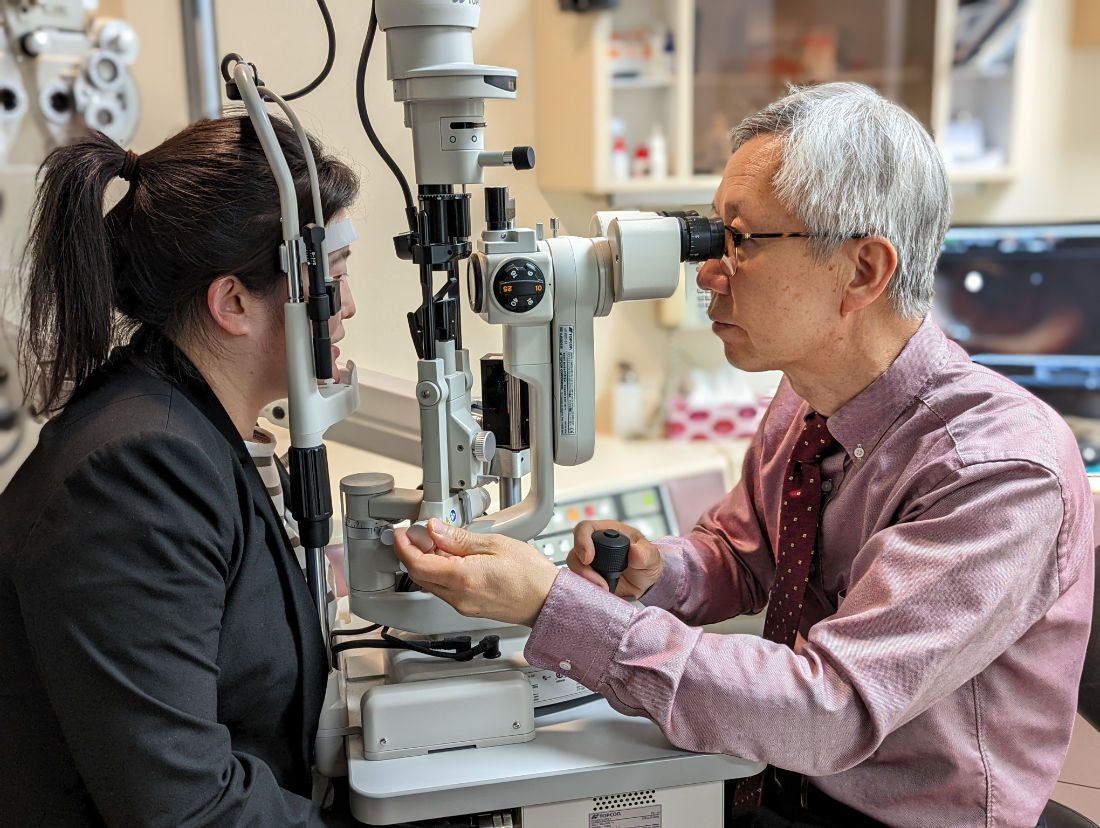Comprehensive Eye Exam
 Comprehensive Eye Exam
Comprehensive Eye Exam
Thorough testing provides you with exact current eyeglass prescription to ensure the best possible clarity of vision, as well as screening for common diseases and conditions including:
Cataracts – a cloudy area in the clear lens of the eye behind the iris
Glaucoma – progressive damage to the optic nerve, loss of nerve tissue that results in vision loss
Eye Infections and Inflammation – Red Eye, Pink Eye, Contact Lens Irritation, Allergies
Dry Eye Syndrome – insufficient lubrication
Macular Degeneration – a disease affecting the macula (center of the light-sensitive retina at the back of the eye), causing loss of central vision
Retinal Disorders including holes, tears and detachments – separation of the retina from the underlying tissue
Some medical and visual tests you can expect during a routine eye exam include:
Pretesting
Auto-Refraction – assessing a refractive error estimate, provides objective measurement of refractive error and prescription for glasses or contact lenses by measuring how light changes as it enters the eye. A starting point for subjective refraction test.
Auto-Keratometry – corneal curvature measurement. This is the shape of the front surface of the eye, for contact lens fitting and detection of certain diseases such as keratoconus, as well as a factor in determining laser surgery candidacy.
Non-Contact Tonometry – intraocular pressure measurement – ascertains fluid pressure in the eye to detect potential onset of glaucoma.
Previous Eye Glasses Frames Measurements – especially helpful if you like the way your past eye glasses fit your face.
Visual Acuity
How well you see at various distances. Subjective refraction test is performed by a series of patient questions to evaluate each eye, individually and together, with and without corrective lenses.
Binocular Vision Testing
Cover Test (eye turn – commonly referred to as ”lazy eye”)
Stereoacuity (3D vision – depth perception)
Accommodative or vergence function (dysfunction resulting in eye strain and/or fatigue)
Colour Vision Evaluation
To detect if there is a color deficiency present
Slit Lamp Biomicroscopy
Examination of the front structures of the eye, including the lids, eyelashes, cornea, conjunctiva etc.
Assessment for dry eye syndrome and other ocular surface disease (disorders of the surface of the cornea, the transparent layer forming the front of the eye)
Pupil Dilation, Fundus Examination, and Binocular Indirect Ophthalmoscopy
Examination of the internal structures of the eye, including optic nerve, peripheral retina, lens, vitreous etc.
At the end of each exam, patients are provided an individualized treatment plan, prescription for eyeglasses, nutriceuticals, medications if appropriate, referrals and co-management as required, and an opportunity to discuss final questions or concerns.
